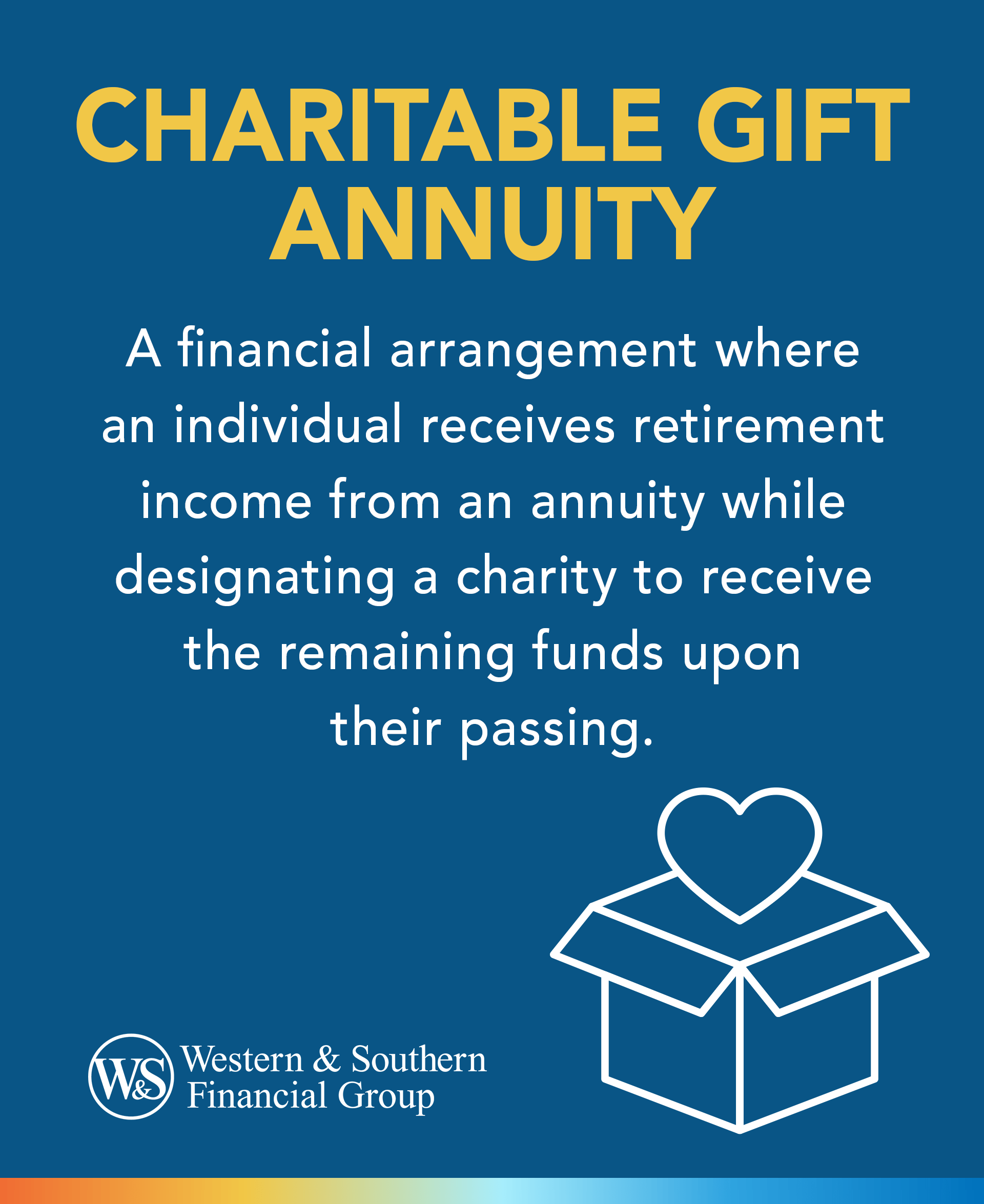


Table of Contents
Key Takeaways
- Charitable Gift Annuities combine retirement income with a charitable donation.
- The annuity pays income to the owner and designates a charity as a beneficiary.
- Tax benefits and legacy opportunities are features of this arrangement.
Probably best known for providing an income stream in retirement, annuities also have a number of other — less well-known — uses. They can be set up to provide income to someone living with a physical or intellectual disability, for instance, or they can help you leave an inheritance (especially if you don't qualify for life insurance).
How Does a Charitable Gift Annuity Work?
Annuities are also an option for those looking to leave a charitable legacy. A charitable gift annuity is a type of annuity that provides its owner with income during retirement while also gifting funds to a designated charity after the owner passes. In other words, the charity becomes a beneficiary. That way, the annuity owner can leave a lasting legacy without having to dip into their retirement funds while still alive.
Traditional Annuity vs. Charitable Gift Annuity
A traditional annuity is a contract you make with a financial services company that's set up to provide you with income at regular intervals after you've first paid into the annuity accordingly. When the beneficiary (usually you) passes, the payments either end or continue on to the next named beneficiary, depending on annuity's structure.
A charitable gift annuity, on the other hand, allows you to leave some of the annuity's value to a charitable organization of your choice. Like a traditional annuity, a charitable gift annuity is funded either with a lump sum or over time; once annuitized, it also pays the beneficiary a specified amount of income on a regular basis. When the beneficiary dies, however, the charity receives the remaining funds.
How the Annuity Payouts Work
Keep in mind a charitable gift annuity may pay out at a lower rate than a traditional annuity, according to the American Council on Gift Annuities, because more of the annuity's value is earmarked for the charity. A lower payout is possible whenever you choose not to use all of an annuity for retirement (assuming the annuity is structured to pass on funds to an additional beneficiary), and you may want to consider adjusting the rest of your retirement finances to account for it.
How a Charitable Gift Annuity is Taxed
A traditional annuity is also not tax-deductible — though it may have tax implications, as some annuities provide tax-deferred earnings. A charitable gift annuity may be partially tax-deductible when funded, as the charity will eventually receive some of the proceeds.
The charity gets nothing from the annuity while the beneficiary is alive, however. You can use a charitable gift annuity to provide a donation to your favorite charity after you're gone while still receiving a potential tax benefit up front and income during retirement.
How to Set Up a Charitable Gift Annuity
If you're looking to set up a charitable gift annuity, you can start by contacting the charity in question; its development or fundraising department can then help you set it up. With this type of annuity, only one charity benefits from the proceeds, although you could set up annuities with other charities as well. Charities must follow state and federal guidelines for annuity rates offered to donors.
It's possible to leave a lasting legacy to a favorite charity or charities through traditional annuities as well, depending on the annuity. You can have the annuity structured to provide a death benefit when the main beneficiary passes — with one or more charities named as beneficiaries for that death benefit — without impacting what the main beneficiary receives during their lifetime. Noncharitable beneficiaries, such as family members, can be included as well.
There's more to annuities than simply providing a source of retirement income. To learn more about how an annuity might fit into your financial goals, contact a financial representative today.
















